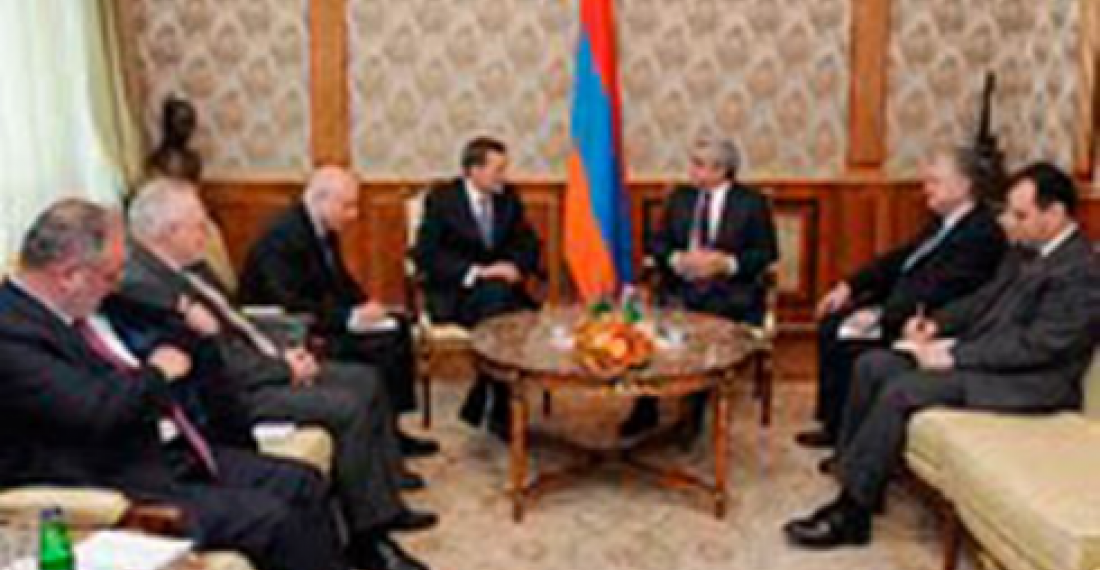The painfully slow, and exasperatingly frustrating, process of trying to find a solution to the Nagorno-Karabakh conflict continues. Diplomats of the three countries representing the OSCE Minsk Process are again in the region in an effort to find common ground, and in the absence of that, at least to help maintain the cease-fire that was agreed exactly eighteen years ago. Yesterday they were in Yerevan where they met the President, Serzh Sargsyan
The press service of the President of Armenia told ArmInfo News Agency that Serzh Sargsyan and the OSCE MG co-chairs "discussed the current stage and the further steps in the Karabakh peace process."
The three co-Chair are now on their way to Baku where they will meet with the Azerbaijani President, Ilham Aliev.
Expectations from this round of talks are very low, compared to a year ago when the sides were thought to be on the verge of a breakthrough. As one observer put it, "last year the focus was on trying to make things better. This year all efforts are being exerted to try to ensure that things don't get worse."
source: commonspace.eu
photo: The OSCE Minsk Group co-Chairmen with the President of Armenia Serz Sargsyan in Yerevan on 12 May 2012. (picture courtesy of the Press service of the President of Armenia).







